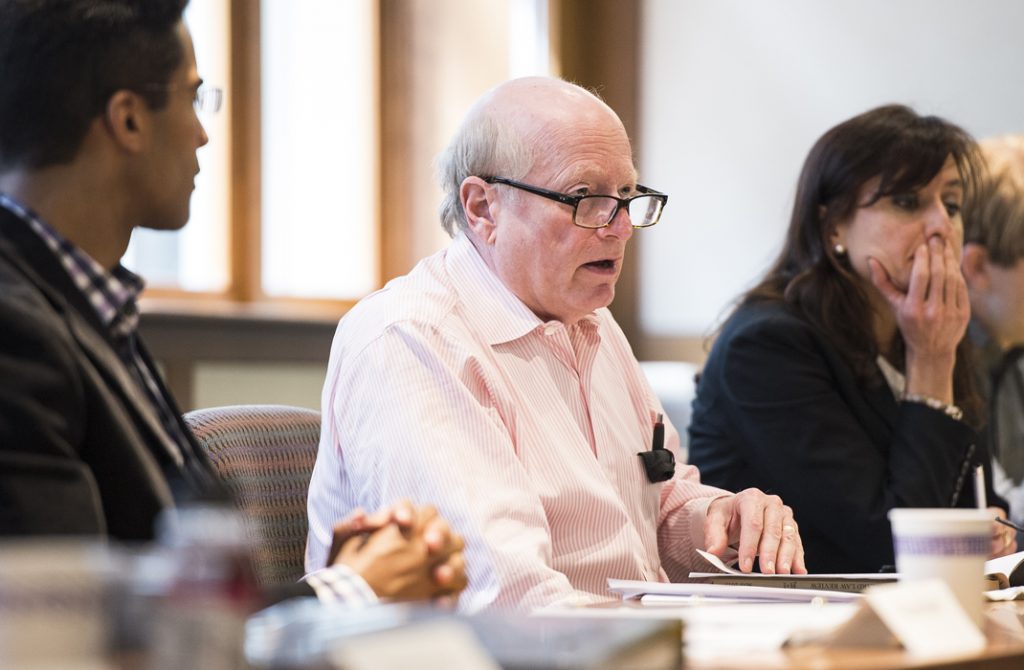Twenty-three scholars from over a dozen countries gathered at BC’s Fulton Hall on May 15, 2015, for a rare, invitation-only workshop on comparative constitutional amendment.
The event, conceived and co-convened by BC Law professor Richard Albert, reflected BC Law’s emerging stature as a global leader in this developing legal field—and Albert’s growing international reputation. Comparative constitutional amendment is the study of how constitutions change through formal and informal amendment and through re-interpretation. Scholars seek to draw insights about constitutional change across nations and cultures, to uncover best practices, and to identify the theoretical underpinnings of constitutional change.
The subject is especially relevant as countries around the world are amending and rewriting their constitutions, according to Albert. “It is important that designers of constitutions have an understanding of the stakes,” he says. “They can only do that if scholars bring to bear their comparative expertise to questions like the ones that we discussed on Friday.”
Those questions looked at issues like constitutional amendment powers, mechanisms for amending constitutions, the creation of constitutions, and assessing constitutions through metrical analysis.
Scholars younger and older, from places as far-flung as Turkey, Brazil, Belgium, and Beijing, participated, as did Professor Mark Tushnet of Harvard, whom Albert calls the “dean of comparative constitutional law in the U.S.” Attendees critiqued eight papers, chosen from responses to a call for papers issued last fall, including one from Dr. Oran Doyle, Head of School at Trinity College Dublin. The authors were matched with discussants—colleagues invited to review and present the papers.
The final papers plus commentaries will be published in a book.
Professor Luisa Fernanda Garcia Lopez of the Universidad Del Rosario, Colombia, was the discussant for “Constituting the Amendment Power: A Framework for Comparative Amendment Law,” a paper-in-progress by Thomas Pereira, a candidate for Doctor of the Science of Law at Yale Law School. “I have never been to a conference like this before, where there are dynamic interactions among the people there,” she reports.
Albert hopes that the workshop will spark future collaborations. “This will benefit not only these scholars and their respective institutions, but also the field of comparative constitutional amendment, which is now starting to take shape,” he says.
Joining Albert in organizing the workshop were Professor Xenophon Contiades of the University of Peloponnese, Greece, and Research Associate Alkmene Fotiadou of the Centre for European Constitutional Law (Athens). The workshop was a presentation of the International Association of Constitutional Law’s Research Group on Constitution-Making and Constitutional Change, and sponsored by BC’s Clough Center for the Study of Constitutional Democracy. BC Law professor Vlad Perju is Director of the Clough Center.


